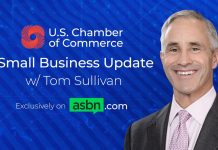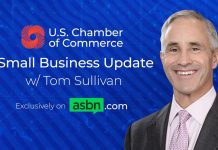As the U.S. economy navigates through election season and potential rate cuts, small businesses are watching closely to understand the impact on their operations. Tom Sullivan of the U.S. Chamber of Commerce joins us on the recent U.S. Chamber of Commerce to discuss how small businesses are preparing for potential opportunities, as well as challenges that lie ahead. With a focus on reinvestment, tax policy, and the future of growth, this conversation sheds light on what small business owners can expect in the coming months.
Key Takeaways
1. Small businesses are anticipating a sales increase following the elections, as seen in the MetLife and U.S. Chamber of Commerce Small Business Index. However, concerns remain over whether these sales will translate into profits.
2. A possible interest rate cut would allow small businesses to borrow at lower rates, which could lead to increased capital investments. This opportunity for reinvestment is crucial in the face of current inflationary pressures.
3. Despite optimism, small businesses are cautious about the long-term effects of reinvestment. Many companies have delayed making significant investments due to economic uncertainty, but a rate cut could spark new opportunities.
4. Rising inflation, particularly in consumer goods like groceries, has frustrated small business owners. They believe that economic growth of around 3% is essential for controlling inflation and fostering a more favorable business environment.
5. Small businesses are worried about the expiration of key tax provisions in 2025. The 20% deduction for small businesses, which has been critical for reinvestment, is at risk, and the uncertainty surrounding future tax policy is causing planning challenges.
“We're hearing this as the 2025 tax cliff. It's when a lot of pro-growth provisions expire. We are working with small business owners to help politicians understand that keeping those pro-growth provisions in place and providing long-term certainty for small business is the solution.” – Tom Sullivan









